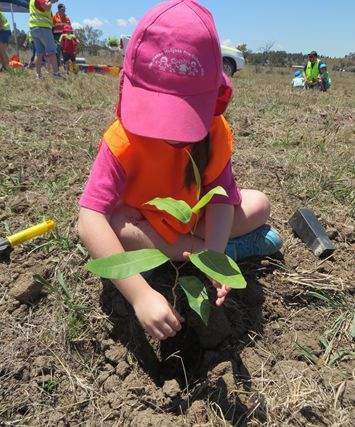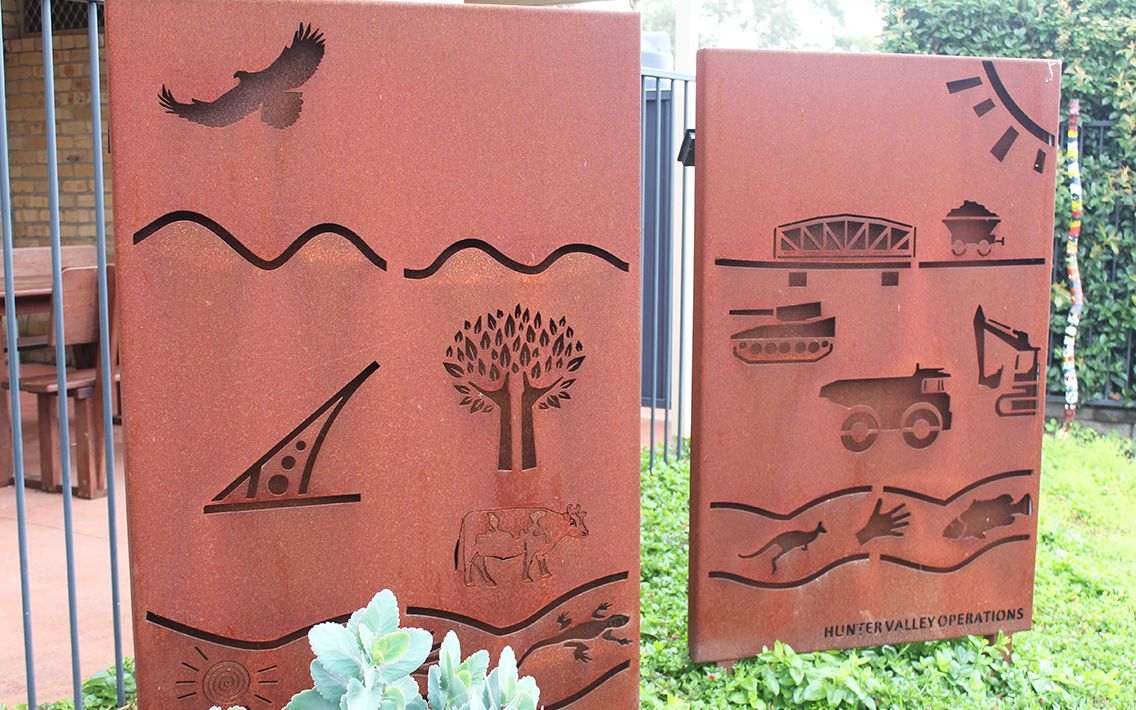This month we hear from Singleton Heights Pre-School Inc. Centre Director, Neisha Dean, and gain insight into the service’s collaborative partnerships improving outcomes for children.
Recently awarded the Excellent rating by ACECQA, Singleton Heights Pre-School is a not-for-profit community preschool based in the NSW Upper Hunter Valley. Many enrolled families in the community are engaged with mining and the Australian Defence Force, however, they also have a high proportion of families who qualify for the low income subsidy relief. One exemplary practice recognised in the preschool’s Excellent award rating is their collaborative partnerships with professional and community organisations. These ongoing partnerships, forged through respectful and reciprocal relationships, have supported the preschool to continuously improve service access, environments, amenities and resources that improve outcomes for children.
Can you tell us about some of your collaborative partnerships?
Cooinda Local Aged Care Facility
Our relationship with Cooinda commenced in late 2019, following a suggestion from one of our families who had a relationship with the facility. A highly successful first visit promoted positive responses from children and residents, alike. From there, the relationship has gone from strength to strength and has been extended by families outside of service interactions as well as residents now visiting the preschool. The partnership has also endured despite the visitation and communication challenges of the Covid-19 pandemic. During 2020, interactions have been sustained through the use of Zoom and iPad technology and has involved the sharing of laminated art-books (to assist with cleaning between use), joint singing and dancing sessions and shared group times and play experiences.
The relationship has supported children to learn to interact with people who experience visual, cognitive, mobility, speech and hearing impairment. The children have developed problem-solving, language, social skills and practice tolerance, understanding, respect and empathy as they pass pieces of games, puzzles and craft to their elderly companions Calming sensory play introduced by the children, such as moulding play dough, has now been embedded in activities at Cooinda residents. Despite initial hesitancy, the use of Zoom has also led to a change in attitude regarding the use of technology and the engagement of the residents with it.
Woodwork Partnership
We have a ten-year partnership with a retired woodworker who has contributed to the replacement and creation of new resources and furniture throughout the service in both a volunteer and paid capacity. The partnership has supported the community member to share his skills and high-quality work, while developing relationships which are beneficial for the social and emotional wellbeing of all involved. Children have a heightened knowledge, understanding and engagement with the woodwork and resources and are being deliberate in their play as they source tools, and in the creations they make.
Glencore Ravensworth Open Cut Mine (GROCM)
In 2015, the service was approached by local mining company and employer of some enrolled families, GROCM, to enter into a pilot community sustainability partnership. The service has been provided with a greenhouse, and receives planting materials from the mine. Children care for seedlings which are then sold back to the company for regeneration planting, with profits from the sale of the seedlings going to the service. Children have also assisted the company to plant the trees they initially grew, at one of their local properties, and children are provided with regular updates about the rehabilitation program.
Children’s involvement in the seed planting and initial growth of the trees has supported their ability to understand plant lifecycles and sustainability practices. It also actively engages children in the rehabilitation of local land, which will provide benefits to the local community in future years.

This project was part of the Pre-School winning first place in the NSW Keep Australia Beautiful awards, in the “School’s Environmental Achievement Award – Population Category E (over 20 000) section, an achievement we are very proud of.
The partnership has also led to collaborations to acquire funding to finance upgrades to service environments and equipment. One upgrade involved materials for the construction of outdoor wooden tables and chairs, which further engaged the partnership with the local woodworker. The tables are custom designed in height and support children from across classrooms to share meals and learning together.
How have funding partnerships supported outcomes for children?
Over the past four years, there has been a noticeable increase in the number of children attending the service who identify as Aboriginal, families who qualify for low income subsidy relief, and families who have no other support networks in the local area. In response to family need and growing enrolments in 2019, which reflected 118 waitlisted children, the service successfully gained NSW Government ‘Start Strong Capital Works Program’ funding to build a fourth classroom to support an additional 40 enrolments, with 20 extra children each day. Operational since September of 2019, 45% of children in this new classroom identify as being of Aboriginal or Torres Strait Islander heritage.
Our not-for-profit service has also successfully received Government and community support funding to upgrade soft fall, provide additional shade covering, install new playground equipment, complete new flooring and fencing projects, refurbish a bathroom, and construct a new verandah. We were also able to install a third water tank and pump and create drought-tolerant gardens, introduce a physical Acknowledgement of Country display, purchase furniture for the classrooms and construct a woodwork shed. Our financial commitment to acquiring funding and grants has resulted in the continuous improvement of service practices, environments and resources to provide children with improved access to high quality learning environments and resources.
Recognising community support opportunities
When looking for grant opportunities you can often find some to support current or new projects, or initiatives at services. While not all grants will have eligibility criteria that apply to all services, there are many different types. Before applying for any grant we think there are some key considerations to think about.
Align a grant with goals and priorities
We needed to be clear of our service priorities and goals, as outlined in our Quality Improvement Plan, Business Plan, and through our practices and procedures in relation to maintenance. Sometimes a new and exciting opportunity will arise. However, important considerations are the current service priorities and the eligibility criteria of the funding grant.
Consult and engage with all stakeholders
During any grant application process, it is important to consult with Educators and staff, management, families and children to ensure all stakeholders feel knowledgeable, involved and heard. When all voices are engaged, it promotes thorough reflection on the diverse possibilities of a project.
The consultation and engagementprocess includes many conversations, but can also involve surveys, brainstorming sessions, site meetings, the sharing and discussion of draft plans and seeking creative input from individuals in the form of visual or written project ideas. To support effective communication, plans need to be organised and clear. Communicating with enthusiasm and positivity will support stakeholders to feel more comfortable during periods of change.
Forge genuine partnerships
Our philosophy and everyday practice reflect our genuine commitment to creating partnerships with organisations in our local community. We may benefit from receiving a grant toward a project or initiative at the service, however, it’s important that the relationship is mutually beneficial. We achieve this by promoting an organisation’s support not only within the service, but throughout our local community. We attend events and presentations organised by the organisation supplying the funding and invite them to celebrations within the preschool.
Interested in finding out more?
Collaborative partnerships are just one of many exceptional practices recognised in the awarding of the Excellent rating to Singleton Heights Pre-School Inc. Read more about their practices on the ACECQA Excellent Rating page. You can also contact Neisha Dean via email admin@singletonheightspreschool.com.au.
This article was originally published in the ACECQUA We Hear You newsletter.
